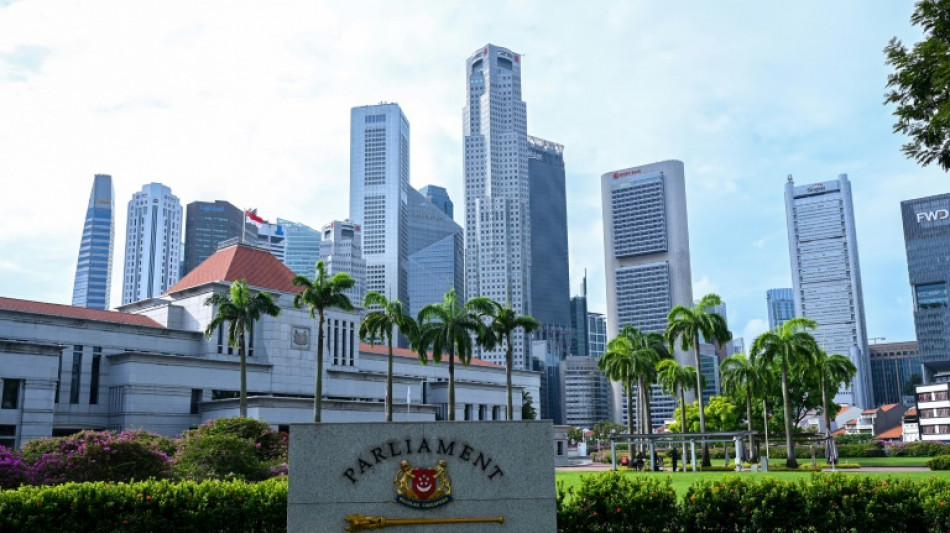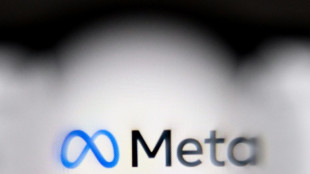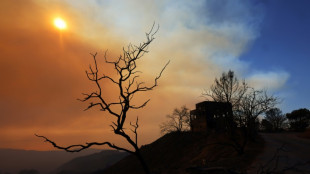
| RELX | -0.86% | 46.37 | $ | |
| NGG | -3.3% | 56.13 | $ | |
| GSK | -1.99% | 33.09 | $ | |
| CMSC | -0.79% | 22.92 | $ | |
| BTI | -2.34% | 35.9 | $ | |
| SCS | -3.01% | 10.97 | $ | |
| RIO | 0.36% | 58.84 | $ | |
| VOD | -1.99% | 8.05 | $ | |
| AZN | 0.64% | 67.01 | $ | |
| BCC | -1.31% | 115.88 | $ | |
| BP | 0.54% | 31.29 | $ | |
| RYCEF | -0.42% | 7.07 | $ | |
| BCE | -2.92% | 22.96 | $ | |
| RBGPF | 100% | 60.49 | $ | |
| CMSD | -0.65% | 23.25 | $ | |
| JRI | -1.16% | 12.08 | $ |

Singapore proposes new law to tackle harmful online content
Social media sites could be blocked or fined in Singapore if they fail to stop users in the tightly-controlled country from accessing "harmful" content under a proposed law introduced in parliament on Monday.
Under the bill, regulators can order social media platforms to block "egregious content" including posts advocating violence and terrorism or depictions of child sexual exploitation.
Content that poses a public health risk or that is likely to cause racial and religious disharmony in Singapore is also included, the Ministry of Communications and Information said in a statement on Monday.
"While some online services have made efforts to address harmful content, the prevalence of harmful online content remains a concern, given the high level of digital penetration and pervasive usage of online services among Singapore users, including children", the ministry said.
Regulators can also order platforms to block a specific account from being accessed by users in Singapore, but the orders will not apply to private communications.
Online communication services "with significant reach or impact in Singapore" may also be required to introduce measures to prevent Singapore users, particularly children, from accessing harmful content, the ministry said, without naming the platforms.
Parliament will debate the bill in November. If it is passed, it would give authorities another tool to control online content.
Singapore last year passed a contentious law aimed at preventing foreign interference in domestic politics.
The law allows authorities to compel internet service providers and social media platforms to provide user information, block content and remove applications used to spread content they deem hostile.
Three years ago, the city-state passed a law combating "fake news", which gives government ministers powers to order social media sites to put warnings next to posts authorities deem to be false, and in extreme cases get them taken down.
H.Vaccarello--LDdC


